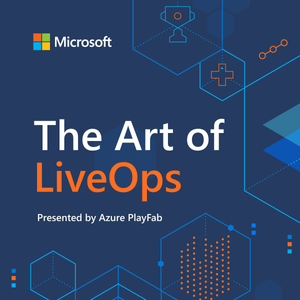
Magic is Bad
10/16/24 • 41 min
The Dangers of Magic in Software Abstractions
In this episode of the Agile Embedded Podcast, hosts Jeff Gable and Luca Ingianni discuss the pitfalls of relying on 'magic' in software development, particularly in tooling, build systems, and frameworks. They illuminate how seemingly helpful abstractions can become burdensome when they obscure necessary complexities or become hard to debug. Through various examples, including comparisons of Arduino and CMake, they explore what makes a good abstraction versus a bad one. The conversation also delves into the importance of composability, testability, and the real-world impact of overly simplistic or 'magical' solutions in long-term projects. The episode wraps up with practical advice for selecting and designing more effective coding abstractions to mitigate risks.
00:00 Introduction and Episode Theme
00:19 The Problem with Magic in Programming
02:54 Examples of Good and Bad Abstractions
04:45 Frameworks and Tools: Arduino vs. CMake
08:10 Vendor-Supplied Tools and Their Pitfalls
13:05 Characteristics of Good Abstractions
29:04 Testing and Abstractions
37:10 Final Thoughts and Contact Information
You can find Jeff at https://jeffgable.com.
You can find Luca at https://luca.engineer.
Want to join the agile Embedded Slack? Click here
The Dangers of Magic in Software Abstractions
In this episode of the Agile Embedded Podcast, hosts Jeff Gable and Luca Ingianni discuss the pitfalls of relying on 'magic' in software development, particularly in tooling, build systems, and frameworks. They illuminate how seemingly helpful abstractions can become burdensome when they obscure necessary complexities or become hard to debug. Through various examples, including comparisons of Arduino and CMake, they explore what makes a good abstraction versus a bad one. The conversation also delves into the importance of composability, testability, and the real-world impact of overly simplistic or 'magical' solutions in long-term projects. The episode wraps up with practical advice for selecting and designing more effective coding abstractions to mitigate risks.
00:00 Introduction and Episode Theme
00:19 The Problem with Magic in Programming
02:54 Examples of Good and Bad Abstractions
04:45 Frameworks and Tools: Arduino vs. CMake
08:10 Vendor-Supplied Tools and Their Pitfalls
13:05 Characteristics of Good Abstractions
29:04 Testing and Abstractions
37:10 Final Thoughts and Contact Information
You can find Jeff at https://jeffgable.com.
You can find Luca at https://luca.engineer.
Want to join the agile Embedded Slack? Click here
Previous Episode

Bailey Steinfadt on teaching git to non-developers
Building Trust with Git: Teaching Best Practices to Non-Software Engineers
In this episode of the Agile Embedded Podcast, hosts Jeff Gable and Luca Ingianni are joined by Bailey Steinfadt, owner of Stonepath Engineering. Bailey discusses her experiences in teaching Git and other software tools to non-software engineers, particularly in small manufacturing companies. Topics include the importance of visibility and trust in code projects, the typical profiles of her clients, and strategies for effective communication and trust-building between technical and non-technical stakeholders. The episode also touches on useful tools like GitHub, Miro, and Draw.io for managing projects and fostering collaboration.
00:00 Introduction and Guest Welcome
00:24 Bailey's Background and Stonepath Engineering
01:41 Challenges with Non-Software Engineers Using Git
05:46 Teaching Git to Non-Software Engineers
14:35 Building Trust Through Git and Communication
20:45 Tools and Techniques for Effective Communication
37:32 Final Thoughts and Contact Information
You can find Jeff at https://jeffgable.com.
You can find Luca at https://luca.engineer.
Want to join the agile Embedded Slack? Click here
Next Episode

Exploring Rust for Embedded Systems with Philip Markgraf
Exploring Rust for Embedded Systems with Philip Markgraf
In this episode of the Agile Embedded Podcast, hosts Jeff Gable and Luca Ingianni are joined by Philip Markgraf, an experienced software developer and technical leader, to discuss the use of Rust in embedded systems. Philip shares his background in C/C++ development, his journey with Rust, and the advantages he discovered while using it in a large development project. The conversation touches on memory safety, efficient resource management, the benefits of Rust's type system, and the supportive Rust community. They also explore the practical considerations for adopting Rust, including its tooling, ecosystem, and applicability to Agile development. The episode concludes with Philip offering resources for learning Rust and connecting with its community.
00:00 Introduction and Guest Welcome
00:26 Philip's Journey with Rust
01:01 The Evolution of Programming Languages
02:27 Evaluating Programming Languages for Embedded Systems
06:13 Adopting Rust for a Green Energy Project
08:57 Benefits of Using Rust
11:24 Rust's Memory Management and Borrow Checker
15:50 Comparing Rust and C/C++
19:32 Industry Trends and Future of Rust
22:30 Rust in Cloud Computing and Embedded Systems
23:11 Vendor-Supplied Driver Support and ARM Processors
24:09 Open Source Hardware Abstraction Libraries
25:52 Advantages of Rust's Memory Model
29:32 Test-Driven Development in Rust
30:35 Refactoring and Tooling in Rust
31:14 Simplicity and Coding Standards in Rust
32:14 Error Messages and Linting Tools
33:32 Sustainable Pace and Developer Satisfaction
36:15 Adoption and Transition to Rust
39:37 Hiring Rust Developers
42:23 Conclusion and Resources
Resources
The Rust Language
Rust chat rooms (at the Awesome Embedded Rust Resources List)
The Ferrocene functional-safety qualified Rust compiler
You can find Jeff at https://jeffgable.com.
You can find Luca at https://luca.engineer.
Want to join the agile Embedded Slack? Click here
If you like this episode you’ll love
Episode Comments
Generate a badge
Get a badge for your website that links back to this episode
<a href="https://goodpods.com/podcasts/the-agile-embedded-podcast-510027/magic-is-bad-76360701"> <img src="https://storage.googleapis.com/goodpods-images-bucket/badges/generic-badge-1.svg" alt="listen to magic is bad on goodpods" style="width: 225px" /> </a>
Copy




